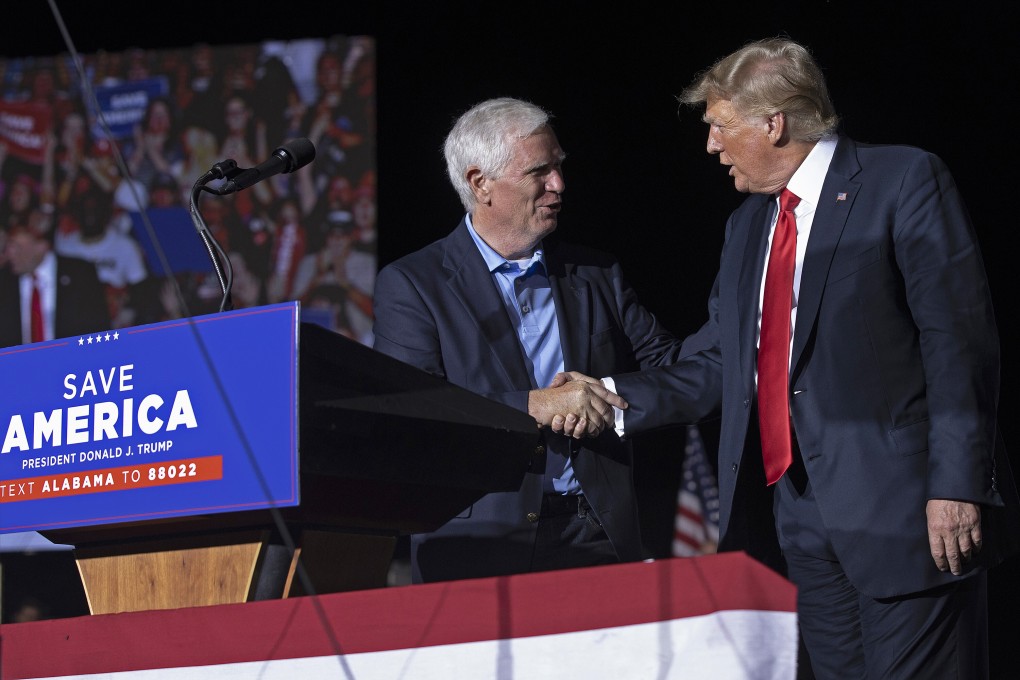On Balance | How Putin’s Ukraine invasion is driving a wedge between Trump and the Republicans
- As Russia’s invasion of Ukraine bogs down, one of the Russian president’s most ardent supporters is also showing signs of weakness
- Recent developments in Congress and on the campaign trail suggest a waning appetite among Republicans to keep standing with Donald Trump

Representative Mo Brooks is seeking the Republican nomination for the US Senate in Alabama and has struggled against his primary opponents. Brooks had the temerity to suggest his party move past the groundless allegation that US President Joe Biden won the 2020 election fraudulently.
Trump quickly rescinded his endorsement of Brooks, who had supported the former president’s lies about the election on January 6, 2021, and in the weeks leading up to it. Wearing body armour and exhorting Trump’s supporters to fight against the certification of Biden’s win, Brooks said on that day: “Today is the day American patriots start taking down names and kicking ass.”
Brooks’ move delivered more ammunition to the House of Representatives select committee investigating the January 6 attack. It seems to suggest further momentum for those within the party and all other sane policymakers to end Trump’s status as the Republican leader.

